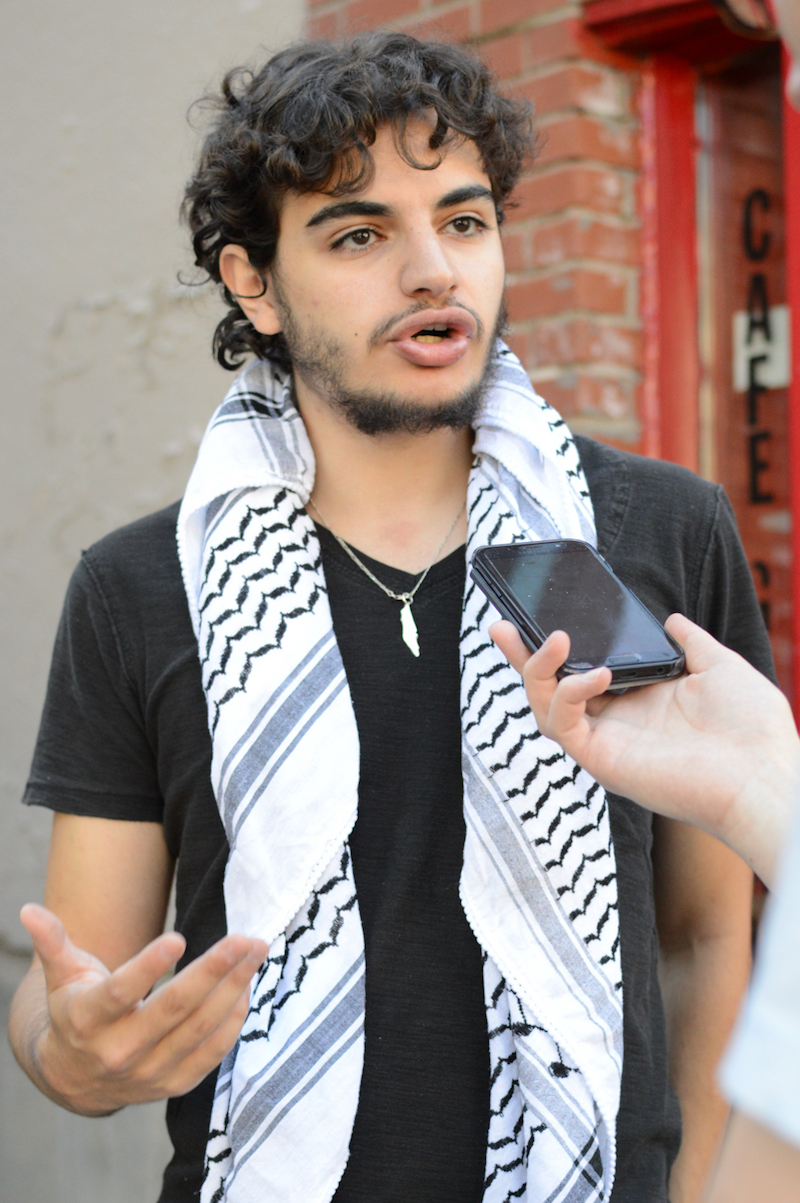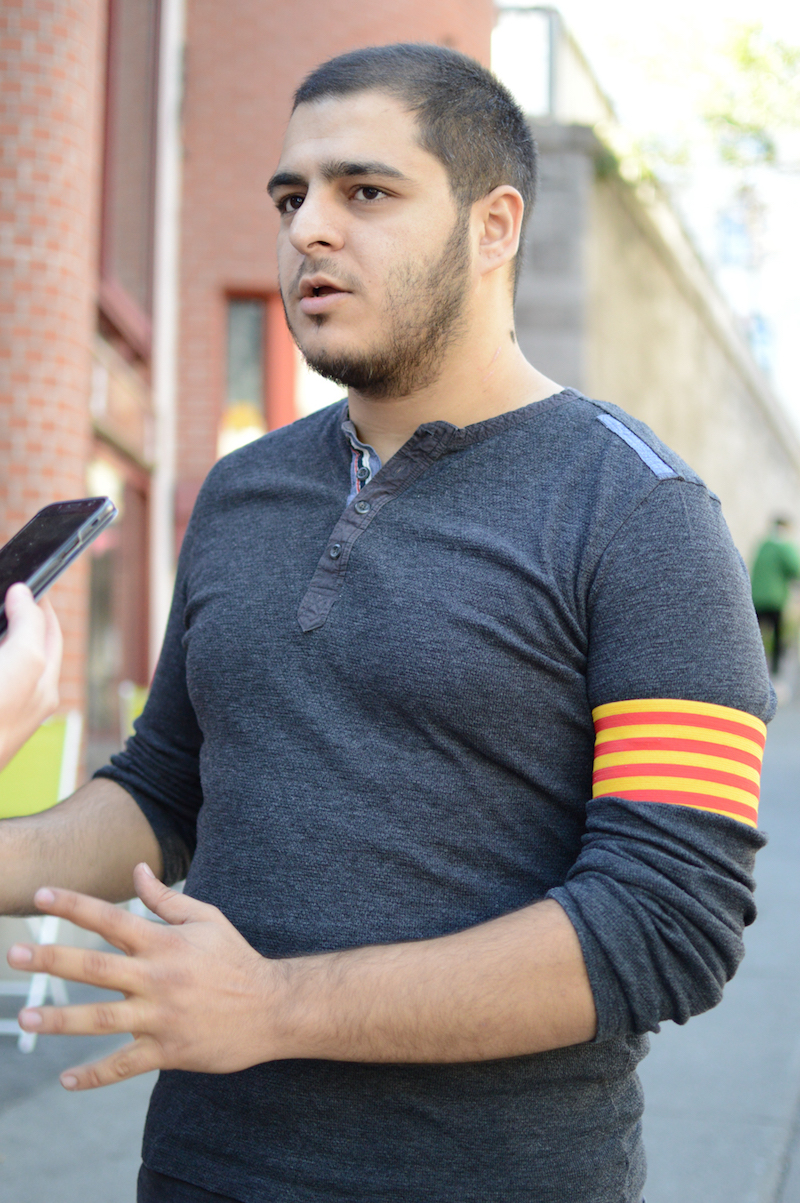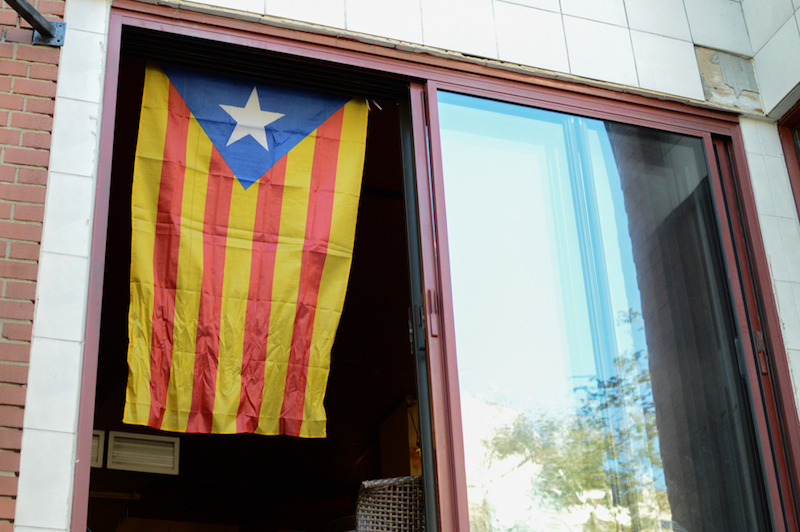Rally organizer Rami Yahia sees cause as case of self-determination
The sound of Catalans chanting in Barcelona coming from the television was loud enough for a sympathizer passing by to hear and wave his hands in the direction of the open window.
Inside Café Gitana, the few people gathered on wooden chairs eyed their phones for results of the Catalan independence referendum and for a better quality live stream than the one playing on the TV screen.

Rami Yahia, the event’s organizer, sat on a Moroccan-style bench with a Palestinian flag hung above his head. The former Concordia Student Union internal affairs coordinator said there are parallels to be drawn between Palestine and Catalonia, which is looking to separate from Spain.
“When we talk about the struggle of Catalonia, we need to look at it under the angle of self-determination,” Yahia said. “The people of Catalan are indigenous to the land of Catalonia, the Palestinians are indigenous to the land of Palestine, and we need to fight injustice wherever it is.”
On Oct. 1, Spanish national police tried to stop the independence referendum in Catalonia by preventing people from voting and closing voting stations early. When the voting closed on Sunday evening, Spanish Prime Minister Mariano Rajoy said in a speech that the referendum was illegal. He bluntly told Spaniards: “There has not been a self-determination referendum in Catalonia.” The vast majority of Catalans voted in favour of independence, according to Reuters, but the vote was not acknowledged by Rajoy.
Organizing the gathering at Gitana was natural, said Victor Boko, Yahia’s childhood friend and the coffee shop’s owner.

Boko described his enterprise as a “revolutionary coffee shop.” Located on the hill of St-Denis Street, the two-storey building is a place of togetherness, he said. The Catalan flag flapping in the wind and the yellow and red arm-band he wears in support of independence are only some of the examples of political solidarity around the coffee shop.
“In the context of Quebec, Indigenous lands have been occupied for hundreds of years. Whether it’s Quebec or Canada, the injustice is still there. We’re all living on unceded territory,” said Yahia a few hours after the event.
Politicians from parties such as the Bloc Québécois, Parti Québécois and Québec Solidaire, were in Catalonia the day of the vote.
About 150 people, including Parti Québécois and Bloc Québécois leaders Jean-François Lisée and Martine Ouellette, met in front of the Spanish consulate in Montreal on Sept. 23 to show their support for the Catalans.
Yahia said he wanted his gathering to be different. “The reason why we’ve organized this event, we noticed [the event on Sept. 23] was just a platform for independence movements in Quebec to promote their own platform and their struggle,” he said. “However we’re looking at this under the lens of self-determination for people of the land.”
Photos by Mackenzie Lad




